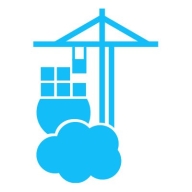

Splunk Observability Cloud and Portainer compete in IT operations management and container orchestration, each offering unique strengths. Splunk Observability Cloud holds an advantage with superior analytics capabilities, but Portainer's strong container management features and efficient management tools make it a formidable competitor for organizations focusing on container orchestration.
Features: Splunk Observability Cloud offers advanced data handling, real-time analytics, and comprehensive metrics monitoring. Portainer provides intuitive container management, support for various orchestration platforms, and a straightforward graphical interface.
Ease of Deployment and Customer Service: Splunk Observability Cloud requires a complex deployment process often necessitating technical expertise, yet it provides strong customer service that aids users. Portainer's simplified deployment process is more user-friendly, accompanied by reliable support services, allowing quicker adoption and problem resolution.
Pricing and ROI: Splunk Observability Cloud typically incurs higher initial setup costs but offers a comprehensive feature suite that may justify the investment for data-intensive operations. Portainer delivers a cost-effective solution with a lower setup cost and potentially faster ROI, appealing for environments heavily reliant on container management.
| Product | Market Share (%) |
|---|---|
| Splunk Observability Cloud | 0.5% |
| Portainer | 5.4% |
| Other | 94.1% |

| Company Size | Count |
|---|---|
| Small Business | 20 |
| Midsize Enterprise | 10 |
| Large Enterprise | 44 |
Portainer offers a robust platform for managing Docker environments, streamlining containerized application deployments and simplifying complex processes. It provides scalability and efficiency for IT operations.
Portainer facilitates comprehensive management of containerized environments, increasing operational efficiency. Known for its intuitive interface and broad functionality, Portainer minimizes time spent on mundane management tasks. Users benefit from resource optimization and improved visibility in container orchestration. As organizations continue to embrace cloud-native technologies, Portainer becomes a reliable choice for those looking to harness the full potential of Docker while maintaining easy control and oversight of container workloads.
What key features does Portainer offer?In industries like healthcare and finance, Portainer is deployed to manage sensitive data workflows, ensuring compliance and security. It's used in manufacturing for optimizing IoT integrations and in the tech industry to manage microservices efficiently, aligning with modern agile development practices.
Splunk Observability Cloud offers sophisticated log searching, data integration, and customizable dashboards. With rapid deployment and ease of use, this cloud service enhances monitoring capabilities across IT infrastructures for comprehensive end-to-end visibility.
Focused on enhancing performance management and security, Splunk Observability Cloud supports environments through its data visualization and analysis tools. Users appreciate its robust application performance monitoring and troubleshooting insights. However, improvements in integrations, interface customization, scalability, and automation are needed. Users find value in its capabilities for infrastructure and network monitoring, as well as log analytics, albeit cost considerations and better documentation are desired. Enhancements in real-time monitoring and network protection are also noted as areas for development.
What are the key features?In industries, Splunk Observability Cloud is implemented for security management by analyzing logs from detection systems, offering real-time alerts and troubleshooting for cloud-native applications. It is leveraged for machine data analysis, improving infrastructure visibility and supporting network and application performance management efforts.
We monitor all Container Management reviews to prevent fraudulent reviews and keep review quality high. We do not post reviews by company employees or direct competitors. We validate each review for authenticity via cross-reference with LinkedIn, and personal follow-up with the reviewer when necessary.